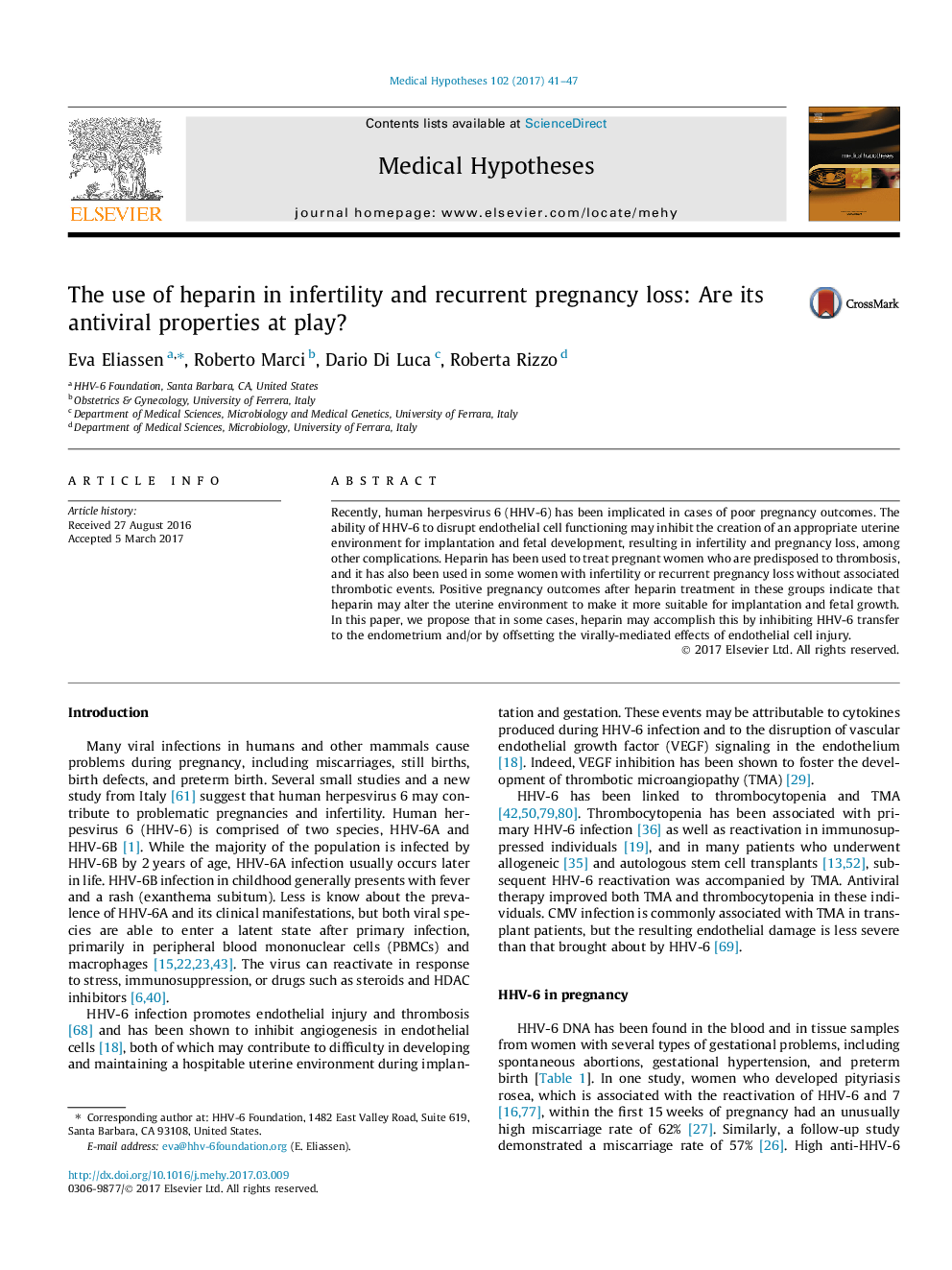| Article ID | Journal | Published Year | Pages | File Type |
|---|---|---|---|---|
| 5548491 | Medical Hypotheses | 2017 | 7 Pages |
Recently, human herpesvirus 6 (HHV-6) has been implicated in cases of poor pregnancy outcomes. The ability of HHV-6 to disrupt endothelial cell functioning may inhibit the creation of an appropriate uterine environment for implantation and fetal development, resulting in infertility and pregnancy loss, among other complications. Heparin has been used to treat pregnant women who are predisposed to thrombosis, and it has also been used in some women with infertility or recurrent pregnancy loss without associated thrombotic events. Positive pregnancy outcomes after heparin treatment in these groups indicate that heparin may alter the uterine environment to make it more suitable for implantation and fetal growth. In this paper, we propose that in some cases, heparin may accomplish this by inhibiting HHV-6 transfer to the endometrium and/or by offsetting the virally-mediated effects of endothelial cell injury.
